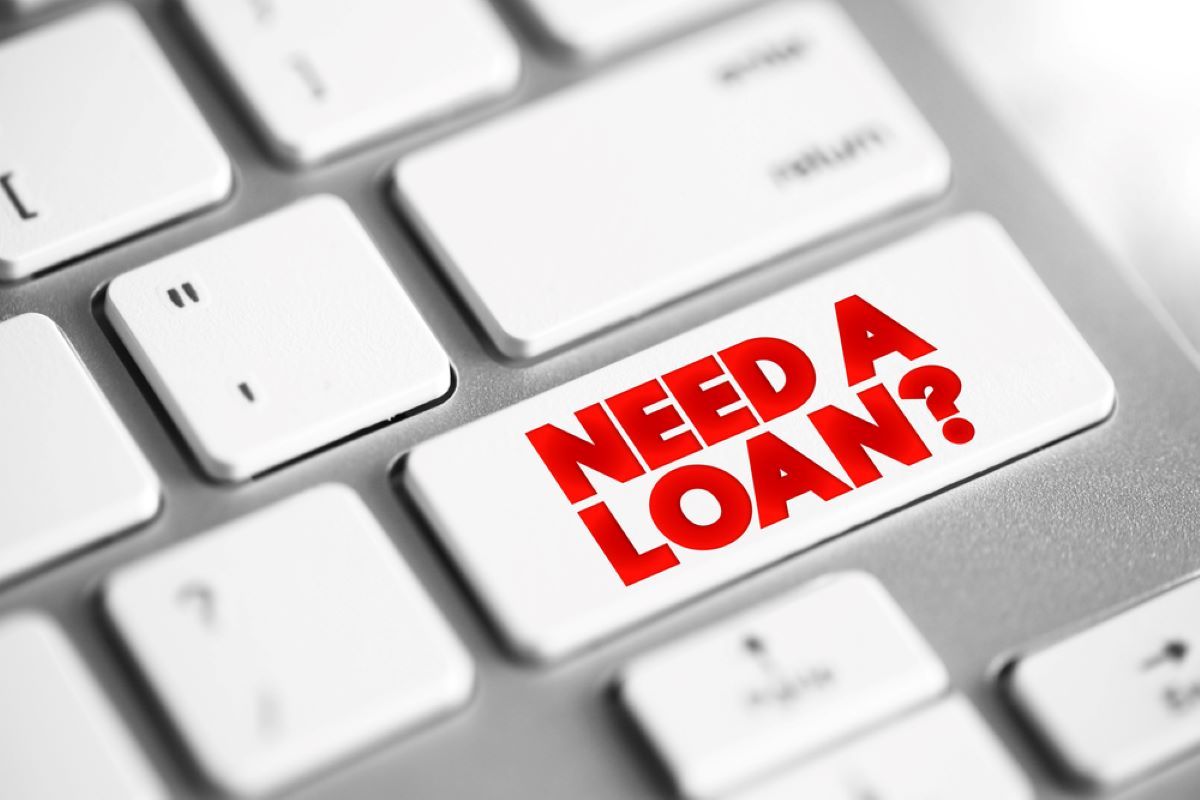How To Use Payday Loans Responsibly: A Comprehensive Guide

Introduction
Payday loans, also known as payday advances or cash advances, are small, short-term loans that are typically due on the borrower's next payday. These loans are usually for amounts less than $500 and are often used by individuals who need quick access to funds before their next paycheck. The concept of payday loans revolves around providing immediate financial assistance to cover unexpected expenses or emergencies.
The purpose of this comprehensive guide is to provide a detailed understanding of payday loans, including:
1. How payday loans work
2. The different types of options available
3. Responsible borrowing strategies
4. Evaluating costs and risks
5. Protecting oneself from predatory lenders and scams
6. Exploring the regulations and consumer protections in the payday loan industry
By gaining insights into these aspects, readers will be equipped with the knowledge and tools necessary to make informed decisions when considering payday loans. This guide aims to empower individuals to use payday loans responsibly and to navigate through the potential challenges associated with this form of borrowing.
Understanding How Payday Loans Work
Payday loans, also known as paycheck loans, are short-term, high-cost loans designed to help individuals bridge financial gaps until their next payday. Here's a breakdown of how payday loans work:
Mechanics of a Payday Loan Transaction
Borrowers typically write a post-dated personal check for the amount they want to borrow plus a fee in exchange for cash. The lender holds the check until the borrower's next payday when the loan and fees must be paid in one lump sum.
How Do Lenders Determine Loan Amounts and Repayment Terms?
The loan amount is usually based on the borrower's income and varies by state regulations. Lenders may also consider the borrower's credit score, but payday loans are generally accessible to people with poor credit.
Examining the Advantages and Disadvantages of Using a Payday Loan Direct Lender
Direct lenders offer convenience and fast approval, but they may have higher fees compared to indirect lenders who act as intermediaries between the borrower and the lending company.
Borrower requirements for payday loans typically include:
1. Having a consistent source of income
2. Being of legal age
3. Having an active bank account
It's important to carefully consider these requirements and loan terms before pursuing a payday loan to ensure it aligns with your financial needs and capabilities.
Exploring Different Types of Payday Loan Options
Payday loans are known for their accessibility and quick approval process, making them an attractive option for individuals in need of immediate cash. However, it's important to understand the different types of payday loans available and their associated risks. In this section, we will explore two common types of payday loan options: payday loans with no credit check and instant cash advance services.
Payday Loans with No Credit Check: Is It Really Possible?
One of the main advantages of payday loans is that they often do not require a credit check. This means that even individuals with poor or no credit history can still be eligible for a loan. Payday lenders typically evaluate loan applications based on the borrower's income and employment status, rather than their credit score.
While this may seem like a convenient option for those with bad credit, it's essential to consider the potential drawbacks. Payday loans with no credit check often come with higher interest rates and fees compared to traditional loans. Additionally, these loans may have shorter repayment terms, increasing the risk of falling into a cycle of debt if not managed responsibly.
Understanding the Risks Involved with Instant Cash Advance Services
Instant cash advance services offer borrowers the ability to receive funds quickly, often within minutes or hours of applying. These services are typically available online or through mobile apps, providing a convenient and accessible way to access emergency funds.
However, it's crucial to approach instant cash advance services with caution. The convenience and speed of these services can sometimes overshadow the high costs associated with them. Instant cash advances often have higher interest rates and fees compared to traditional payday loans. Additionally, borrowers may face risks such as hidden fees, aggressive collection practices, and potential fraud or identity theft.
It's important to carefully review the terms and conditions of any instant cash advance service before accepting an offer. Consider alternative options such as personal loans from banks or credit unions, which may offer lower interest rates and more favorable repayment terms.
By understanding the different types of payday loan options available, borrowers can make informed decisions and choose the option that best suits their needs while minimizing the risks involved.
Responsible Borrowing Strategies for Emergencies
When Should You Consider Applying for Emergency Same-Day Loans?
If you find yourself in a situation where you need money urgently, here are a couple of instances where applying for emergency same-day loans might be a good option:
· Urgent Financial Needs: Emergency same-day loans can be considered when faced with urgent financial needs, such as unexpected medical expenses or car repairs.
· No Safer Alternatives: If there are no safer alternatives available and the urgency of the situation requires immediate attention, emergency same-day loans might be a viable option.
Finding Safer Alternatives to Traditional Payday Loans
It's important to explore other options before resorting to traditional payday loans, which often come with high-interest rates and fees. Here are a few alternatives worth considering:
· Credit Union Loans: Consider seeking out small-dollar loans from credit unions that often offer more favorable terms and lower interest rates compared to traditional payday loans.
· Personal Installment Loans: Exploring personal installment loans from reputable lenders can provide a more manageable repayment structure.
Tips for Engaging in Responsible Borrowing with Payday Loans
If you do decide to take out a payday loan, it's crucial to do so responsibly to avoid getting caught in a cycle of debt. Here are some tips to keep in mind:
· Assessing Repayment Ability: Before obtaining a payday loan, carefully assess your ability to repay the loan within the specified timeframe without compromising your financial stability.
· Avoiding Rollovers: Refrain from rolling over payday loans as this can lead to a cycle of debt due to additional fees and compounding interest.
· Budgeting and Planning: Utilize payday loans as a last resort after exhausting all other options, and incorporate them into a comprehensive budget plan to ensure timely repayment.
By considering these responsible borrowing strategies, individuals can make informed decisions when facing financial emergencies without falling into the pitfalls associated with traditional payday loans.
Evaluating the Costs and Risks Associated with Payday Loans
When considering taking out a payday loan, it is crucial to carefully evaluate the costs and risks associated with this type of borrowing. Understanding the true cost of a payday loan and being aware of the potential risks can help you make an informed decision. The following key points should be taken into account:
How to Calculate the True Cost of Taking Out a Payday Loan
Calculating the true cost of a payday loan involves looking beyond the advertised interest rate or fee. Here's how you can determine the actual cost:
1. Determine the fees: Payday loans often come with upfront fees, such as origination fees or processing charges. These fees can significantly add to the overall cost of borrowing.
2. Calculate the interest: In addition to fees, payday loans also have high interest rates, usually expressed as an annual percentage rate (APR). It's important to calculate the APR to understand the total cost of borrowing over time.
3. Consider repayment terms: Payday loans typically require full repayment by your next payday. If you're unable to repay on time, additional fees and interest charges may apply.
By factoring in all these elements, you can get a clearer picture of how much a payday loan will truly cost you.
The Cycle of Debt: Understanding the Potential Risks
One significant risk associated with payday loans is the potential for entering into a cycle of debt. Here's how it works:
1. Short repayment term: Payday loans are designed to be repaid quickly, often within two weeks or less. For many borrowers, this short timeframe can make it challenging to repay the loan in full.
2. Renewal or rollover options: If you're unable to repay your payday loan on time, some lenders may offer renewal or rollover options. However, these options often come at an additional cost and can prolong your debt.
3. Multiple loans: Some borrowers may find themselves taking out multiple payday loans to cover their initial loan or other expenses. This can lead to a cycle of borrowing and accumulating more debt.
It's important to be aware of these risks and carefully consider whether a payday loan is the best option for your financial situation.
Stand out from your competitors by presenting invoices with a unique and professional appearance.
Invoice Temple is the ultimate invoicing solution designed exclusively for entrepreneurs.
Access a diverse selection of invoice templates that cater to different business needs and enhance your brand image.
Sign up and enjoy invoicing for free.
Available on google play store for android and PCs.

Protecting Yourself from Predatory Lenders and Scams
When choosing a payday loan provider, it's crucial to be vigilant and watch out for red flags that may indicate predatory lending practices. Some key warning signs to look out for include:
Warning Signs of Predatory Lending Practices
· Unsolicited offers: Be cautious of lenders who reach out to you first without any prior inquiry or request on your part. Reputable lenders typically don't engage in aggressive marketing tactics.
· Lack of transparency: If a lender is reluctant to provide clear and detailed information about the terms and conditions of the loan, including the total cost and repayment terms, it could be a sign of potential deception.
· Pressure tactics: Avoid lenders who employ high-pressure sales techniques or try to rush you into making a hasty decision without giving you the opportunity to fully understand the implications of taking out a payday loan.
Measures to Protect Yourself from Scams
To safeguard yourself from falling victim to fraudulent lending practices, consider the following measures:
1. Research and comparison: Take the time to research multiple lenders and compare their offers before making a decision. Look for reviews on the internet, verify your business with the Better Business Bureau, and look up advice from trustworthy sources.
2. Understanding your rights as a borrower: Familiarize yourself with the laws and regulations governing payday loans in your state. Knowing your rights can empower you to recognize when a lender is not adhering to legal requirements.
By being vigilant and well-informed, you can protect yourself from potential scams and predatory lending practices while seeking financial assistance through payday loans.
Regulation and Consumer Protections in the Payday Loan Industry
The Consumer Financial Protection Bureau (CFPB) plays a crucial role in regulating payday lenders by enforcing laws and providing oversight to ensure fair practices. It monitors and addresses issues related to payday loans, striving to protect consumers from predatory lending practices. CFPB regulations aim to promote transparency and accountability within the payday loan industry.
Military Protections for Servicemembers
Servicemembers are protected by Military Annual Percentage Rate (MAPR) restrictions, which cap interest rates at 36% for payday loans and impose limitations on associated fees. These measures are designed to safeguard military personnel from falling into debt traps caused by high-cost payday loans.
State Level Regulations
In addition to federal regulations, individual states have implemented their own measures aimed at consumer protection in the payday loan industry. These may include:
· Interest rate caps
· Limits on loan amounts
· Cooling-off periods between loans
· Requirements for lenders to assess a borrower's ability to repay before extending credit
The combined efforts of federal and state regulations contribute to a more secure environment for consumers considering payday loans. Borrowers need to be aware of these regulations and protections when seeking financial assistance through payday lending channels.
End Line
In conclusion, payday loans can be a helpful tool in times of financial emergencies, but it is crucial to use them responsibly. Here are the key takeaways and final thoughts on using payday loans responsibly:
1. Payday loans are short-term, high-cost loans that should only be used for immediate financial needs.
2. It is important to carefully evaluate the costs and risks associated with payday loans before borrowing.
3. Responsible borrowing strategies include considering alternatives to traditional payday loans, such as credit union loans or borrowing from family and friends.
4. Understanding the true cost of a payday loan, including fees and interest rates, can help borrowers make informed decisions.
5. Protecting yourself from predatory lenders and scams involves researching lenders, reading reviews, and being cautious of any red flags.
6. Regulation and consumer protections in the payday loan industry play a vital role in safeguarding borrowers' interests.
Remember, while payday loans can provide temporary relief in emergencies, it is essential to have a plan in place for repayment to avoid falling into a cycle of debt. By using payday loans responsibly and exploring safer alternatives, you can navigate financial challenges more effectively.
One such alternative is seeking assistance from non-profit credit counseling agencies that can guide budgeting, debt management, and negotiating with creditors. Additionally, building an emergency fund and exploring options like personal loans or borrowing from friends and family can help alleviate the need for payday loans in the future. Ultimately, being informed, cautious, and proactive about your financial decisions can go a long way in protecting yourself from the potential pitfalls of payday loans.
Also Read...




